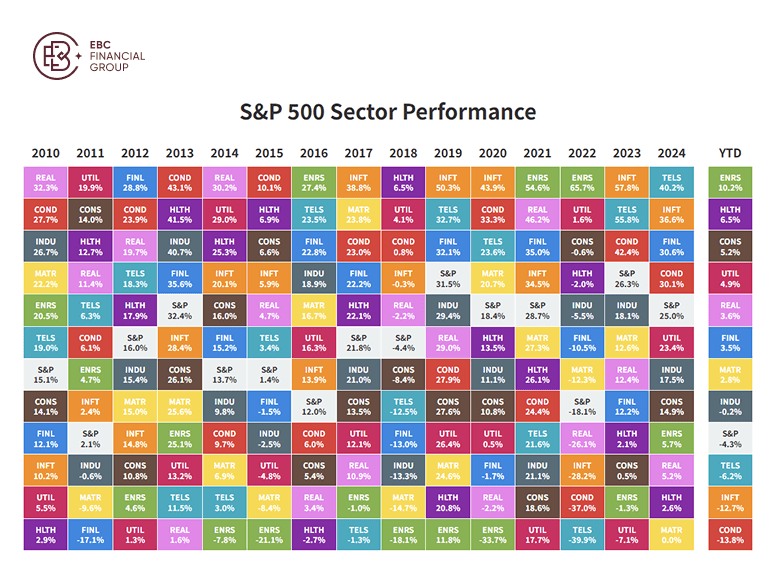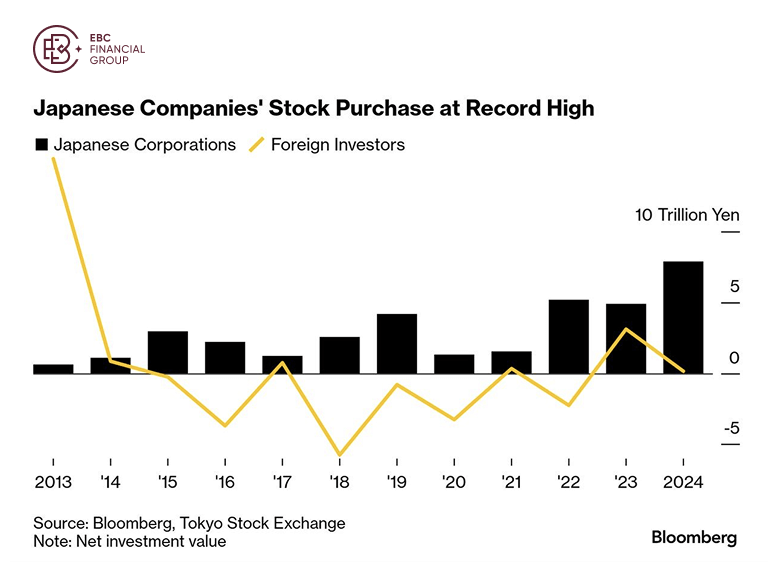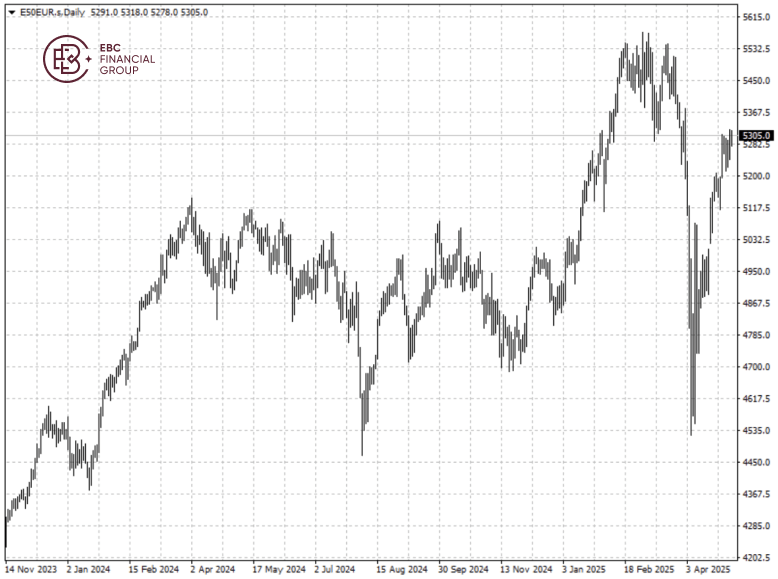US stocks have dropped for three consecutive months, with the hardest-hit
consumer discretionary sector down nearly 14%. Tesla should take the blame as it
has wiped out over one thirds of market value in 2025.

Strategists at the BofA shed light on where some of the capital flowing out
of the US may be heading. According to their data analysis, Wall St saw an $8.9
billion outflow in the week to 30 April.
At the same time, European equities saw a $3.4 billion inflow, and Japanese
equities saw a $4.4 billion inflow in the week to April 30 — its biggest week of
inflows since April 2024.
The bank also revealed that its private clients, who collectively have $3.7
trillion in assets, began to worry more about deflation in the States, relative
to inflationary risks over the past four weeks.
PIMCO told the Financial Times that recession risks are at their highest in
years and warned investors may be underestimating Trump's resolve to restore the
steep tariffs that roiled markets last month.
Still there is a silver lining. US companies are planning to buy back a
record $500bn of their own shares as they prefer increasing EPS to business
expansion with excess cash amid growth concerns.
According to JPMorgan, S&P 500 companies exceeded EPS consensus forecast
by an average of 7.8% in Q1, significantly above what the bank had expected, in
a sign of corporate resilience.
Buffett's "sushi legacy"
Warren Buffett on Saturday gave a full-throated endorsement to the five
Japanese trading houses, more than a month after Berkshire Hathaway raised its
stakes in those stocks to 9.8%.
"In the next 50 years, we won't give a thought to selling those," Buffett
said. "We have been treated extremely well by the five companies." His
designated successor Greg Abel also showed approval of the view.
Japanese companies' earnings from overseas investments topped 30 trillion yen
for the first time last year, with US investments accounting for 26% of the
total, the most of any country.

This reflects the growth of Japanese acquisitions and factory construction on
American soil. That could help hedge soothe Washington's sheer discontent at
outsourcing US manufacturing.
Adding to confidence, share buybacks announced by Japanese companies in April
nearly tripled on the previous year as boards opted for placating investors over
holding dry powder for tariff uncertainties.
That came in the wake of a record-breaking ¥20tn of repurchases in fiscal
2024, which analysts described as a "regime shift" in corporate Japan's approach
to cash hoarding and balance sheet management.
Bruce Kirk, Japan equity strategist at Goldman Sachs, said the figures showed
there was momentum for shareholders' corporate governance push "despite all the
uncertainty caused by the tariffs and recession fears".
Europe headache
The Dow has lagged far behind the Stoxx 50 year to date as Europe outgrew the
US in Q1, helped by more aggressive stimulus. US tariffs are also set to offer
unexpected income source to European companies.
The findings of the survey from the EU Chamber of Commerce in China indicate
that its members could take market share from American suppliers, including
manufacturers.
Despite that, large employers are outlining the hit to consumer confidence,
the threats to supply chains and the destabilising effect of prolonged
uncertainty over the level of tariffs.
Executives argued that was hobbling their ability to plan. Talks between the
EU and the US have made little progress, with Brussels set to impose retaliatory
tariffs on 8 July in the absence of a trade deal.
Currency Appreciation opens up a new threat to exporters. SAP and Schneider
Electric are among the companies to warn investors of a potential hit after the
euro climbed to a three-year high.

HSBC analysts have slashed their forecast for profit growth this year for the
FTSE Europe index to 2.9%, warning that the stronger euro could "significantly
affect" their overseas earnings.
Several major banks expect the euro to strengthen further. For instance,
Athanasios Vamvakidis, BofA's global head of G10 currency strategy, predicts the
euro will hit 1.17 by the year end.
Disclaimer: This material is for general information purposes only and is not
intended as (and should not be considered to be) financial, investment or other
advice on which reliance should be placed. No opinion given in the material
constitutes a recommendation by EBC or the author that any particular
investment, security, transaction or investment strategy is suitable for any
specific person.



















